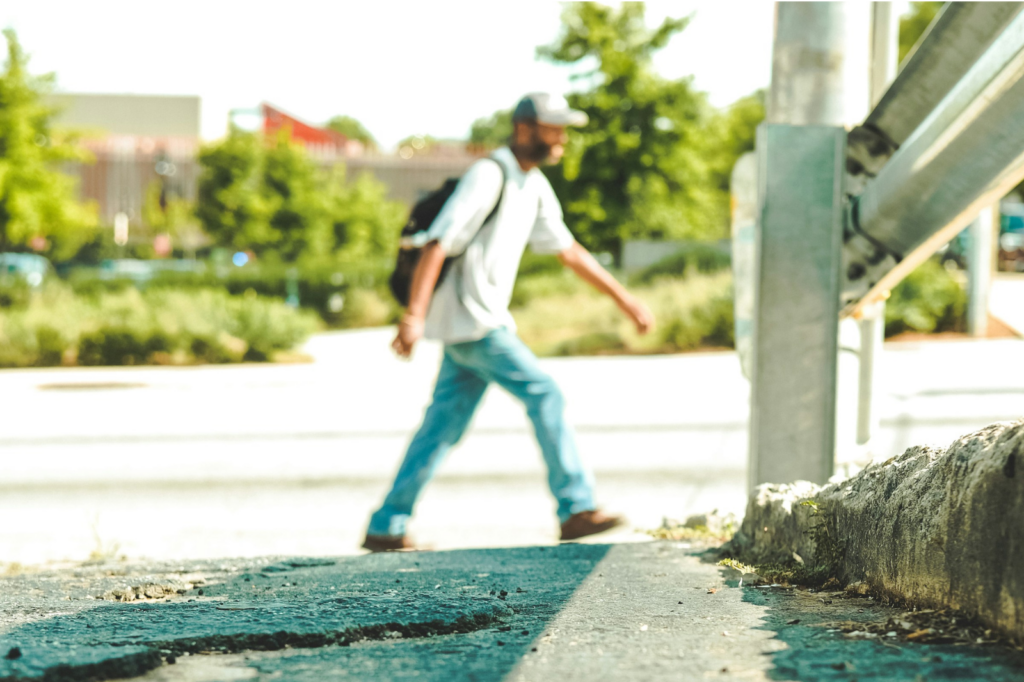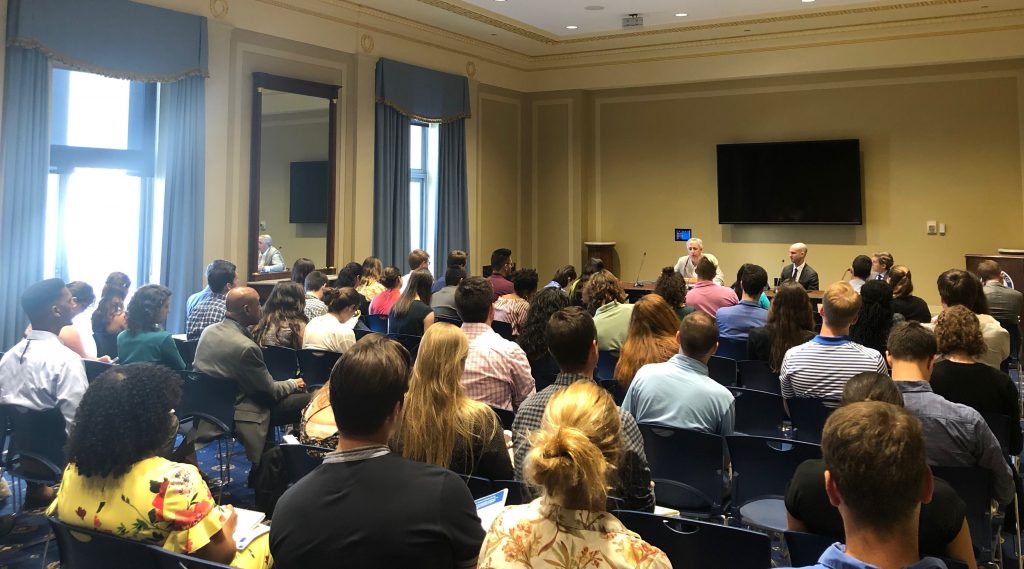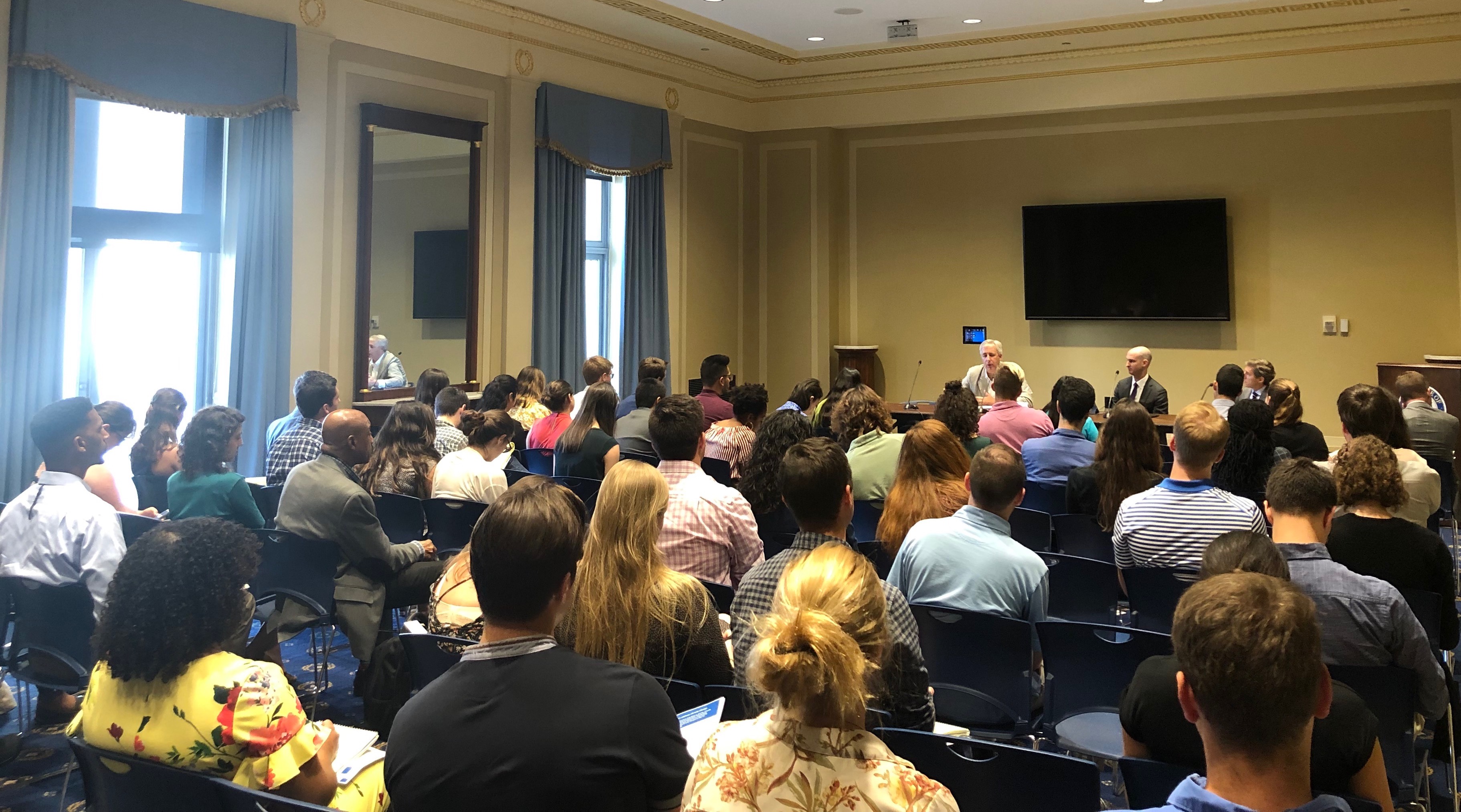
Reps. García and Pressley host briefing on transportation and climate, announce caucus

 Last week, Representatives Chuy García (IL-4) and Ayanna Pressley (MA-7) co-hosted a briefing on Capitol Hill on the nexus of transportation and the climate crisis and announced the imminent launch of a caucus focused on creating a new vision for our transportation system.
Last week, Representatives Chuy García (IL-4) and Ayanna Pressley (MA-7) co-hosted a briefing on Capitol Hill on the nexus of transportation and the climate crisis and announced the imminent launch of a caucus focused on creating a new vision for our transportation system.
We took our message to Capitol Hill last week, with a packed briefing on the often ignored or misunderstood nexus between transportation and climate change. Transportation is now the single largest source of greenhouse gases (GHG), contributing 29 percent of the United States’ total GHG emissions. While many other sectors have actually improved, transportation is headed in the wrong direction.
When we talk about transportation and climate change, we too often only discuss electric vehicles and CAFE standards or fuel efficiency. The distance we drive, known as vehicle miles traveled or VMT, is entirely left out of the conversation. As we have discussed, federal policy incentives communities to build car-oriented places that are unpleasant or unsafe for anyone outside of a car. This forces people to drive more and further, generating emissions and worsening climate change.
At the briefing, Reps. García and Pressley kicked it off with a pre-recorded welcome video in which both members of Congress expressed the need for a more visionary and equitable transportation policy. Their creation of a caucus that would focus on policy first rather than funding is especially timely. With the next surface transportation reauthorization right around the corner and climate change emerging as a top issue for voters, this is a much needed discussion on Capitol Hill.
Transportation for America’s Policy Director Scott Goldstein then spoke alongside Adie Tomer of Brookings and Rob Puentes of the Eno Center for Transportation about the links between transportation and climate change. The three provided Congressional staffers an overview of how our surface transportation policy has incentivized more driving, which has lead to more emissions.
The briefing was very well attended, with more than 50 Congressional staffers present. Goldstein, Tomer, and Puentes each spoke of the need to reorient federal transportation funding away from highways and instead prioritize spending for repairing the infrastructure we already have and for projects that increase access within communities. Doing so would make it safer and more convenient for people to take transit, make shorter car trips, walk, and bike. These strategies, the speakers stated, are crucial to reducing transportation emissions.
We’re excited to have Rep. García and Rep. Pressley championing these issues and we’ll tell you more about the caucus once it formally launches.



